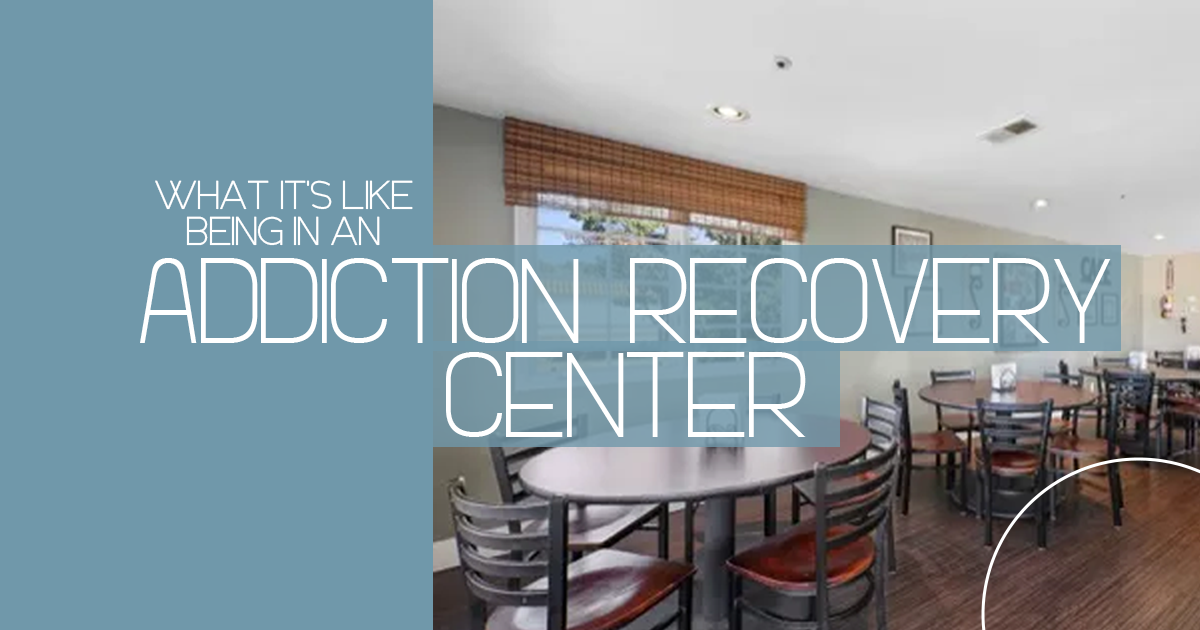Addiction recovery centers help patients suffering from drug abuse by reducing their dependence. These centers have programs with varying durations depending on the patient’s condition and level of dependency.
If this is your first time visiting a drug recovery program, inpatient treatment may be the best option. In this treatment option, you have to live in the recovery center for a period. Even though residential inpatient is often the best method of treatment, many times this process begins with a medical detox program.
The Benefits of an Addiction Recovery Center
Drug abuse recovery centers offer a wide range of benefits such as daily structure, experienced medical staff, and psychological support. When you receive continuous treatment in an addiction recovery center, you can efficiently deal with your cravings.
Many abusive substances require individual treatment because of intense withdrawal symptoms. Limiting your dependence on drugs becomes easier when you receive detox from a doctor. Doctors conduct drug evaluations to test your dependency on drugs and create a personalized plan.
What Happens at an Addiction Recovery Center?
When a patient visits a rehab center for the first time, they have to fill out rehab admission forms. In these forms, you discuss your health and the substances you are addicted to. Addiction recovery treatments can be quite scary for first-timers. However, once you know what to expect, you will feel relaxed. Below we will discuss each step of the rehab program so you have a clear idea about what you are getting into.
Check-In
When you submit your rehab admission form, the staff will take your interview. They will try finding out more about you and your drug addiction. This is an important part of your recovery process. The experts will write their findings on the rehab admission form for future reference. Also, they will use the information to create a customized plan for your treatment.
The National Institute on Drug Abuse suggests that every patient suffering from drug dependency should take at least 90 days of treatment. However, addiction recovery centers offer different treatment durations.
Detox
After an initial assessment, the healthcare providers will begin the detoxification process. In this process, doctors will eliminate drugs or alcohol from the body. Detoxification can be difficult depending on the duration of abuse. It is important to cleanse your body before starting treatment. Once the doctor removes the substance from your body, you can be physically and mentally ready to continue the treatment.
The detoxification process can take three to 14 days. The time depends on various factors such as duration, intensity, and type of drug consumption. If you recently stopped using a drug with a high potential for dependency, including alcohol, benzodiazepines, or heroin, this could be difficult for you. You might feel uncomfortable and notice severe withdrawal symptoms. In many cases, doctors keep patients on medication to reduce withdrawal symptoms.
Therapy
You will undergo various types of therapies to avoid relapse, overcome your cravings, and stay clean in the future. Some of these therapies are:
- Individual Therapy
When you take individual therapy, a health professional will conduct one-on-one sessions to encourage you to have open conversations. In these sessions, the doctor will help you understand your condition, your dependency, and the effects of addiction. It is a personal education technique that will help you realize where you went wrong.
Furthermore, the therapist will identify your triggers and teach you the best techniques to tackle them. By following the instructions by your healthcare professional, you can eliminate the urge to consume drugs. However, this could take some time.
The specialist will create a special therapy treatment for you along with sessions. Individual therapy can be of different types. Motivational interviewing and cognitive-behavioral therapies are common treatment methods for addiction.
Remember, whatever you will talk about with your doctor will remain confidential. The duration of these sessions can vary depending on your condition.
- Family Counseling
Many addiction recovery centers include family counseling in their program. When family members are involved in addiction treatment, patients recover faster. In this treatment process, professionals also guide families to contribute to the recovery process. Sometimes, painful emotions can help people recover faster.
Family counseling will help your family members learn the best techniques to support you after the treatment process. Many addiction recovery centers involve family and friends throughout the entire process, starting when you submit the rehab admission forms until follow-up aftercare.
- Aftercare Planning
When the rehab treatment process ends, you can leave the center. However, you have to visit the doctor for aftercare. This helps the doctor to evaluate your condition after rehab. Aftercare reduces drug and alcohol relapse, which is an important component of addiction recovery treatment.
The aftercare plan includes medical and social support services. It might also include follow-up therapy, transitional housing, and counseling. Alumni support groups, medical evaluations, and other suggestions also help prevent relapse and triggers.
Seeking Treatment
An addiction recovery center like ours offers the best support to drug abuse patients. In this treatment process, you will work on your belief systems, learn about your triggers, and treat other problems that encourage drug abuse.
Furthermore, you will learn to suppress your emotions in the outside world. Professionals will educate you about how to continue your internal work. They will also guide you on how to live a healthy life.
If you have friends who are still consuming drugs, then you should set new boundaries with them. If your job is stressful and works as a trigger, bring changes in your life. Learning new coping mechanisms will help you avoid these challenges and focus on your career.
Contact Covenant Hills Treatment by calling 844-268-8412 to learn more about the treatment options available to you. Once you are enrolled, our experts help you overcome your struggles to live a healthy life.








